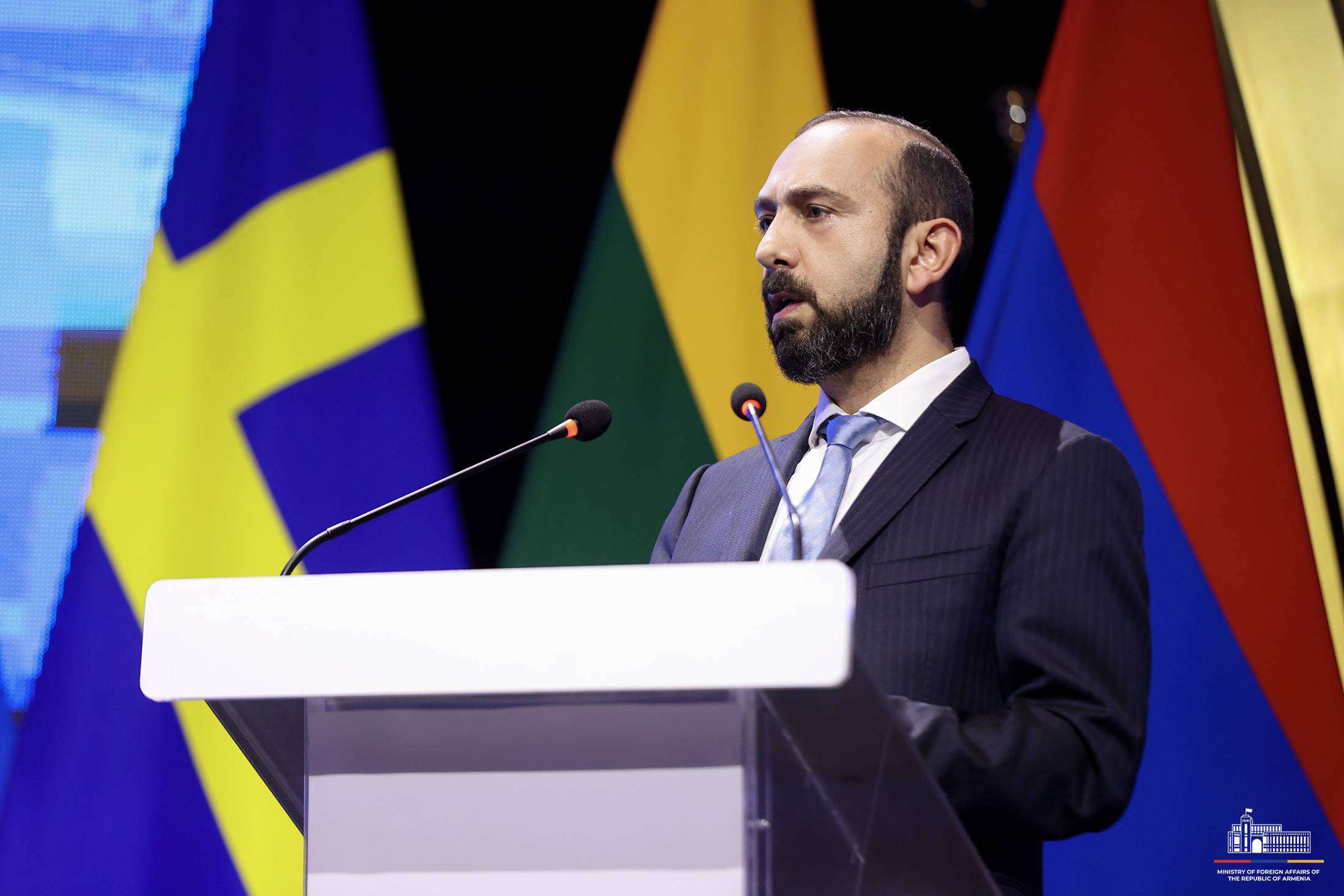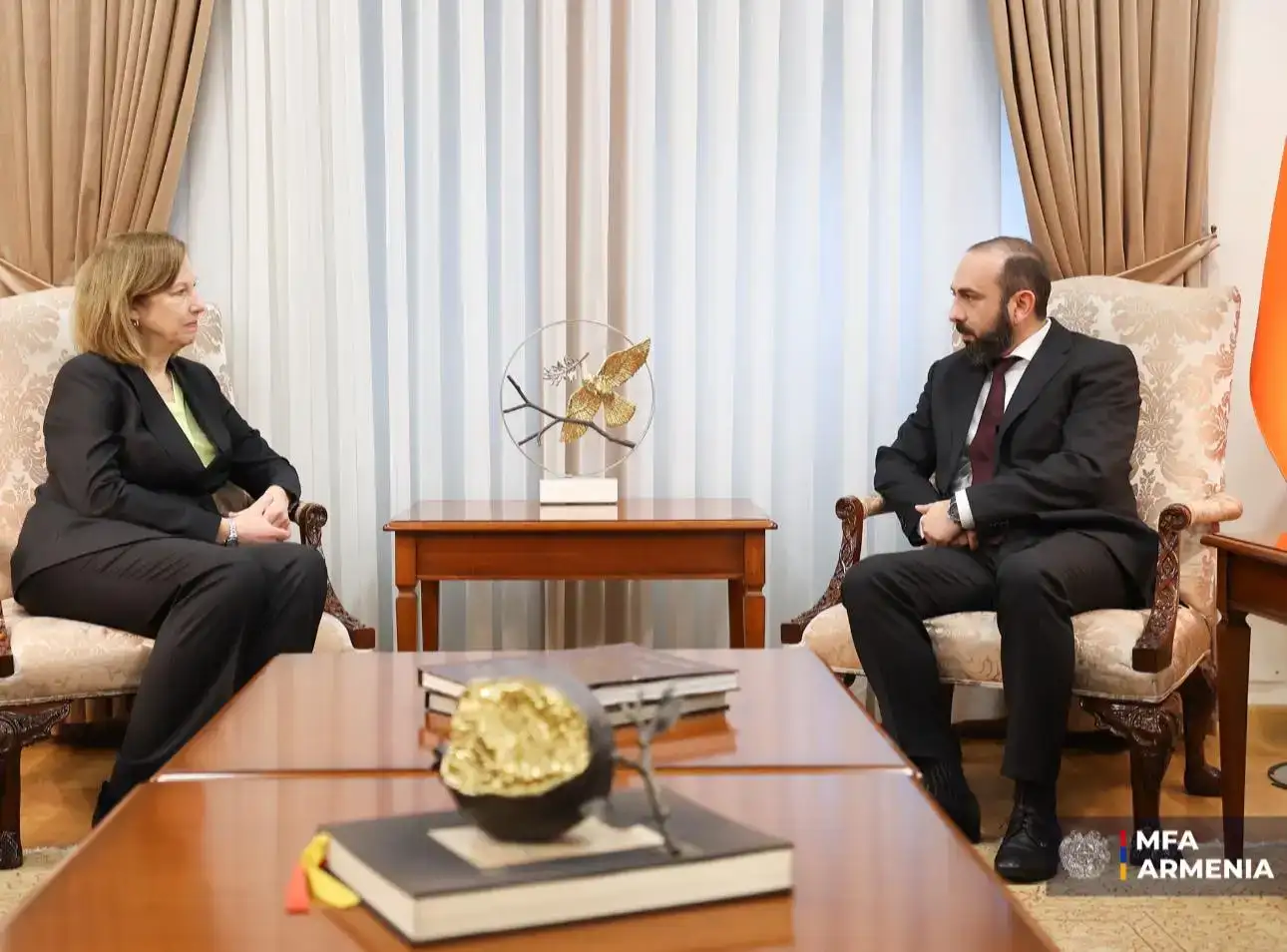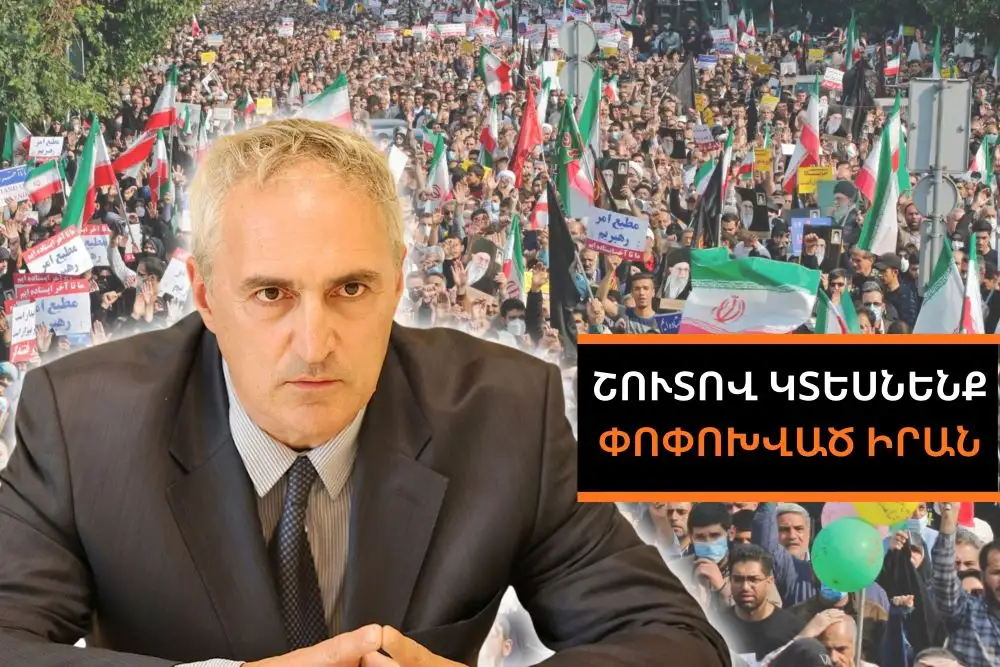On January 23, RA Foreign Minister Ararat Mirzoyan delivered a speech at the "Together for Peace and Democracy" panel discussion, which was held during the visit of the Speakers and Deputy Speakers of the Parliaments of Northern Europe and the Baltic States to Armenia. The full text of Minister Mirzoyan's speech is presented below.
"Honorable Speaker of the National Assembly of the Republic of Armenia, Mr. Simonyan, esteemed Speakers and Deputy Speakers of the Parliaments, distinguished guests, Excellencies, ladies and gentlemen, I warmly welcome you to Armenia. I assume that you expected more; you were promised that you would see more sun in the Armenian sky these days, but I am not sure whether we can justify those expectations. Instead, I assure you that when it comes to political promises, the principles of Democracy and human rights, freedom of speech, and the protection of Democracy in the world, we are much more reliable.
Only a month ago, I participated in a ministerial meeting between the Republic of Armenia and the Nordic-Baltic countries in Malta, which was organized at my request with the assistance of the Ministers of Foreign Affairs of your countries. Now, I have the opportunity to share my thoughts within the framework of this very important discussion on the occasion of this essential visit to my country by the Speakers of the Parliaments of the Nordic-Baltic countries or their representatives. We are committed to seeking and finding new opportunities to deepen cooperation between our countries.
Ladies and gentlemen, switching to Armenian, I want to mention why Armenia is interested in significantly deepening cooperation with the Nordic-Baltic countries. These reasons are very transparent and very simple; they are self-serving. And yet, these reasons are as follows: In my profound conviction, the Nordic-Baltic countries are the countries or among the nations where democratic institutions are the strongest, the most institutionalized, as well as the most protected, the most established, where human rights are the most protected, and societies stand firmly on the values of Democracy and freedom, and where societies understand the dangers and risks that global Democracy faces today. This is one layer. The second layer: The Nordic-Baltic countries are perhaps one of the most excellent examples of regional partnership and cooperation for us, and in both these respects, we have much to learn and, I hope, to a certain extent, to give.
Ladies and gentlemen, I do not know how your discussions today will go, what direction they will take, whether they will be theoretical discussions, debates about peace and Democracy, or practical analyses of specific manifestations and cases on the example of Armenia, the South Caucasus, or other regions. Still, I would like to give a brief idea before your discussion or share my understanding of today's Armenia.
First of all, today's Armenia is a democracy. Secondly, it is an inexperienced one, indeed still facing many things to do, mistakes, and a long road to learn from its mistakes, but it is already a democracy. A society that has finally had the opportunity to demonstrate its dedication to Democracy. Paradoxically, when Armenia was trying to defend Democracy, Democracy was the very tool that came to protect Armenia. I want to give you an example from 2021, when the Armenian authorities, seeing our country in a domestic political crisis after the 2020 war, seeing this also due to external influences, as well as after the attempted military coup and other disruptive attempts, the Armenian authorities decided to hold early parliamentary elections, that is, to use the primary tool of Democracy - elections directly.
In the elections, the political team I represent, led by Prime Minister Nikol Pashinyan, presented the Armenian society with two main proposals: Democracy and peace. Judging by the results of the elections, we can say that the citizens of the Republic of Armenia, for the most part, as befits the rules of Democracy, unequivocally, without any doubt from any side, chose Democracy and peace.
Perhaps many will agree with me that in the case of Democracy, it is probably a little easier because Democracy depends on you; Democracy is your conversation with you in society. In the case of peace, it is a little different because you are dealing with a neighbor, and you cannot build peace alone. You can try very hard, but you cannot make it if you cannot convince or find a common path to make peace with your neighbor, and this is precisely what we are in now.
I promised to say what Armenia is today and so, Democracy and the pursuit of peace. We are trying to regulate our relations with our immediate neighbors, Turkey and Azerbaijan. I can say right away, and this is a public fact, that we now have a reasonably lively dialogue with our western neighbor, Turkey, with whom we have had a closed border for more than 30 years; we have certain common understandings that more open borders and more direct cooperation can benefit both Turkey and Armenia and other countries in the region. Here, we have a lively, intensive dialogue aimed at results, but, unfortunately, not yet powerful and tangible results on the ground, as they say. With Azerbaijan, we have also been involved in negotiations for more than a few years. These negotiations are ongoing; these negotiations have several directions. You saw one in the form of a video. We propose to open the borders, to restart, first of all, to restart the railway connection, to create opportunities for goods. This is not only for Armenia and Azerbaijan but also for all countries from east to west.
The other direction, of course, is the delimitation of borders. Here, I attach key importance to the process of delimitation that has begun - a process that started and is underway based on the Alma-Ata Declaration. This is a document, again to give a very brief idea, a document that the former republics of the Soviet Union, after the collapse of the Soviet Union, agreed to recognize each other's territorial integrity and the borders that existed between them at the time of the collapse of the Soviet Union. In essence, this means that the delimitation of borders on this basis will mainly imply the restoration and reproduction on the ground of the borders that existed at the time of the collapse of the Soviet Union. This is a key achievement, especially when chaotic processes grossly violate international law, rules, and territorial integrity.
There is a third direction, which comes to complete the other directions. This is the peace treaty. We have worked long and hard with Azerbaijan to get an agreed text on the peace treaty. We currently have 15 agreed-upon articles out of 17 that are under discussion. On the one hand, most of the work is done, and we only have two articles left to agree on; conversely, the agreement on these articles may still take a long time. The solution is one: a demonstration of political will by both countries is necessary. In the event of the political will required, it will take us a very short time to complete the text. We have that political will.
Prime Minister Pashinyan has repeatedly expressed readiness for the Republic of Armenia to finalize the text of the agreement and sign it one day in advance, or if you like, one minute in advance. Unfortunately, I cannot say that we see the same constructive approach and readiness from our neighbors, but again, this is a process that has no alternative; that is, even the difficulties that we encounter during the negotiations, even the constructiveness that often seems to us not to be shared by our neighbors, cannot, of course, disappoint us. Just like Democracy and freedom, peace has no alternative. Please be aware that in the person of the Republic of Armenia, you have a partner who deeply believes in Democracy, believes in peace, and has not stopped and will not stop doing everything, all possible steps, so that in the South Caucasus, here in our small corner of the world, we have a peaceful and democratic haven. Thank you. Of course, I did not keep my promise to speak briefly; I apologize and wish you a good discussion.




















